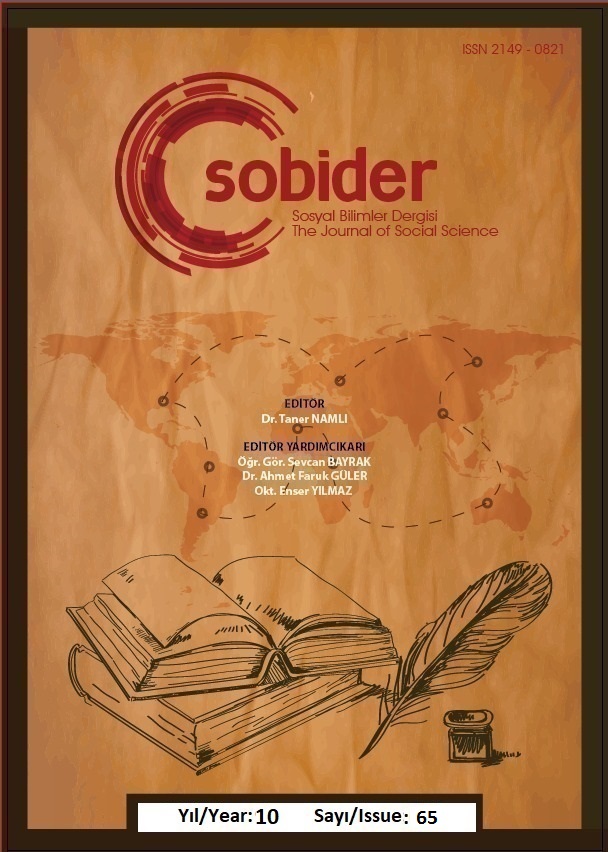Author :
Abstract
Türk dili ve edebiyatı eğitiminde mizahi metinlerin kullanılmasına dair bu çalışmada öncelikle mizahın tanımına, kuramlarına; eğitimde ve Türk edebiyatında mizahın yerine değinilmiştir. Örneklem olarak Türk dili ve edebiyatı dersi 2018 yılı öğretim programı seçilmiş olsa dahi çalışmada sunulan öneriler gelecekte hazırlanacak öğretim programlarında da dikkate alınabilecek şekilde yapılandırılmıştır. Bulgular ve yorum bölümünde Türk dili ve edebiyatı öğretim programlarında mizahın kullanımı tarihî seyri ve güncel hâli ile açıklanmış, edebiyat eğitiminde mizahi metinlerin kullanımının önemine yer verilmiştir. 2018 Türk dili ve edebiyatı öğretim programında mizahın ilişkilendirilmesine dair öneriler verildikten sonra bir sınıf içi uygulama sunulmuştur. Sonuç bölümünde çalışmanın temel probleminin bulguların ışığında değerlendirmesi yapılmıştır, bu doğrultuda çağın öğrenenlerinden temel beklentinin eleştirel düşünebilmeleri ve düşündüklerini yazılı veya sözlü olarak etkili şekilde aktarabilmeleri olması üzerinde durulmuştur. Varılan noktada Türk dili ve edebiyatı eğitiminde mizahi metinlerin öğrenme hedeflerine katkı sağlayacağı, içerdikleri unsurlarla öğrencilerin eleştirel düşünme, yaratıcı yazma başta olmak üzere üst düzey becerilerini geliştirebileceği düşünülmektedir.
Keywords
Abstract
In this study on the use of humorous texts in Turkish language and literature education, firstly the definition of humor, its theories; the place of humor in education and Turkish literature is mentioned. Even if the 2018 curriculum of the Turkish language and literature course was chosen as the sample, the suggestions presented in the study were structured so that they could be taken into account in the curriculum to be prepared in the future. In the findings and comment section, the use of humor in Turkish language and literature teaching programs is explained with its historical course and current state, and the importance of the use of humorous texts in literature education is emphasized. After giving suggestions on the association of humor in the 2018 Turkish language and literature curriculum, an in-class implementation was presented. In the conclusion part, the main problem of the study was evaluated in the light of the findings, and in this direction, it was emphasized that the main expectation from the learners of the age is to be able to think critically and to be able to effectively convey what they think in written or oral form. At this point, it is thought that humorous texts in Turkish language and literature education will contribute to the learning objectives of the course, and that students can develop their high-level skills, especially critical thinking and creative writing, with the elements they contain.





